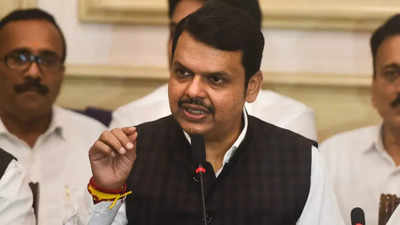Karnataka is set to see a change in leadership as the Congress party considers appointing a new Chief Minister. While the decision is still pending, reports suggest that former Chief Minister Siddaramaiah may be making a comeback to the position. Additionally, the party’s state president, DK Shivakumar, is expected to be appointed as the deputy chief minister. These developments shed light on the importance and status of the deputy chief minister in Indian state politics.
In Indian politics, the post of a Chief Minister holds great significance, as they are responsible for leading the state government. However, the role of a Deputy Chief Minister cannot be overlooked. The recent reports of former Chief Minister Siddaramaiah potentially returning to office and DK Shivakumar being appointed as the Deputy Chief Minister in Karnataka highlights the importance and status of this position in Indian politics.

Hindustan Times
Unlike the post of a Chief Minister, the Deputy Chief Minister does not hold a constitutional post. However, the positioning in the hierarchy within a ministerial circle is what sets the position apart. In a given period of time, the Deputy Chief Minister is considered to be the number two position in the party. It is a strong political post, which speaks to the individual’s influence and power within their party.
The nature of portfolios allocated to the Deputy Chief Minister determines the weight they carry in the cabinet. Often, Chief Ministers retain control over most of the important portfolios. However, if the government is a coalition, senior leaders of the largest coalition partner typically get portfolios related to finance and revenue.

Questions over the importance of Dep. CM started surfacing after the appointment of Fadanvis as the Deputy CM of Maharashtra
In an executive setup, financial powers are considered to be the most important. A Deputy Chief Minister holds the same financial powers as other cabinet ministers. However, even for their own portfolio, they must take approval from the Chief Minister for any expenditure over and above the allocated budget.
The role of a Deputy Chief Minister is not just confined to their duties in the state government. They also play a crucial role in party politics. In many instances, they are responsible for maintaining unity and order within the party, working closely with the Chief Minister to ensure the government’s smooth functioning.
While the Deputy Chief Minister may not hold a constitutional post, their position holds great significance in the political landscape of Indian states. It is a reflection of the individual’s power and influence within their party and their ability to work closely with the Chief Minister to bring about positive change in their state. The potential appointment of Siddaramaiah and Shivakumar highlights the importance of this role and their potential impact on the Karnataka government.



















































































